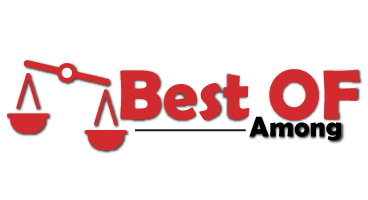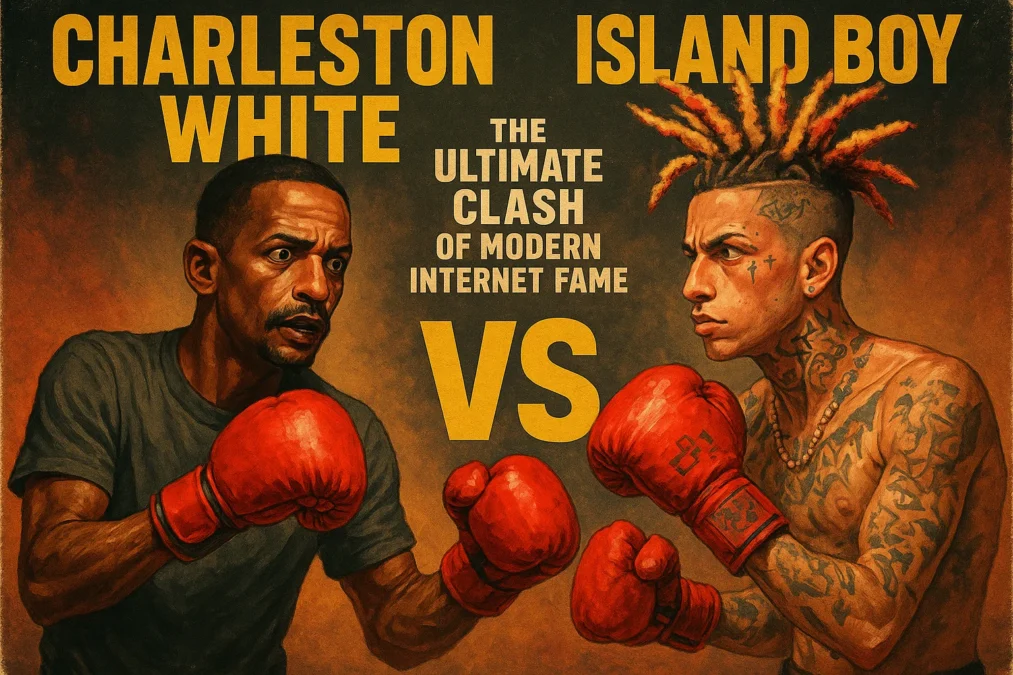In the vast and chaotic landscape of internet celebrity, few rivalries capture the sheer absurdity and cultural significance of the ongoing saga between Charleston White and Island Boy. This isn’t a traditional feud between two artists in the same field, nor is it a simple personal disagreement. Instead, the dynamic between these two figures represents a profound collision of two entirely different worlds, philosophies, and pathways to fame. On one side, you have Charleston White, a self-styled provocateur and controversial commentator who built a platform on brutal, often inflammatory, social commentary rooted in a troubled past. On the other, you have the Island Boy duo, Alex and Franky Venegas, who became an overnight viral sensation through a bizarre, meme-able moment of rap and swagger, embodying a new era of fame-for-fame’s-sake. The “charleston white vs island boy” narrative is more than just online drama; it’s a microcosm of contemporary culture, a debate about authenticity, the price of virality, and the very definition of success in the digital age. This article will dissect their origins, their rise to notoriety, the nature of their clashes, and what this entire spectacle says about us, the audience.
The Origins of a Provocateur: Who is Charleston White?
To understand the “charleston white vs island boy” phenomenon, you must first understand the man behind the microphone. Charleston White is a complex and often contradictory figure whose persona is deeply intertwined with his traumatic past. His story begins not in the glow of a computer screen, but in the harsh realities of the Texas foster care system and a youth marked by violence. At the age of 12, White was involved in a tragic incident that would shape the rest of his life: he was a participant in the murder of a 13-year-old boy. This event led to his conviction and time in a juvenile correctional facility, a period he often credits with both his downfall and his eventual redemption. This background is not just a footnote; it is the bedrock of his entire brand. He leverages his past as the ultimate source of credibility, positioning himself as someone who has seen the worst of the streets and has the authority to speak on them without filter.
Emerging from his troubled youth, White transformed himself into a public speaker, activist, and eventually, a viral internet personality. He founded the non-profit organization HYPE (Helping Young People Excel) with the stated goal of steering youth away from the paths he once walked. However, his methods are where the intense controversy begins. Charleston White does not believe in gentle guidance or political correctness. His approach is one of aggressive, confrontational, and often deeply offensive criticism. He targets prominent Black celebrities, cultural trends, and social justice movements with a rhetoric that many label as hate speech, while his supporters see it as painful but necessary truth-telling. His rise to mainstream internet fame was fueled by clips from his live seminars and YouTube shows, where his unfiltered rants against figures like DaBaby, Megan Thee Stallion, and the entire drill rap scene went viral, attracting millions of views and cementing his status as the internet’s most polarizing commentator.
The Viral Meteors: Who Are the Island Boys?
In stark contrast to the dark, complicated origin story of Charleston White, the rise of the Island Boys represents a different, distinctly 21st-century path to fame. The duo, consisting of twin brothers Alex and Franky Venegas, exploded into the public consciousness in late 2021 with a single, bizarrely captivating video. The clip, filmed in what appears to be a backyard in South Florida, features the brothers—shirtless, heavily tattooed, and with their hair in signature blonde twists—rapping in a heavily Auto-Tuned, off-kilter melody. The lyrics, “I’m an Island Boy, I’m an Island Boy, I’m just tryna make it back to my island,” repeated like a mantra, were instantly and relentlessly memeified. There was no tragic backstory, no deep social commentary, just a strangely earnest and utterly unique performance that the internet could not look away from.
Their fame was instantaneous and largely devoid of traditional context. The public knew nothing of their past, their talents, or their intentions beyond “tryna make it back to my island.” They were a pure product of the TikTok and Instagram Reels algorithm, a phenomenon born from a perfect storm of absurdity, repetition, and shareability. They quickly capitalized on their virality, launching music careers, appearing on talk shows, and amassing millions of followers across social platforms. However, this type of fame is often fleeting and fragile. The Island Boys were largely seen as a joke, a living meme whose fifteen minutes of fame were being stretched to their absolute limit. Their every move was scrutinized and mocked, from their musical endeavors to their public disputes and their attempts to maintain relevance long after the initial viral wave had crested. They became emblematic of a new archetype: the celebrity who is famous not for a particular skill, but simply for being famous.
The Nature of the Beef: How the Charleston White vs Island Boy Rivalry Ignited
The clash between Charleston White and the Island Boys was perhaps inevitable, a perfect storm waiting to happen when the world of hard-edged social commentary collided with the world of vapid viral sensation. The initial spark for the “charleston white vs island boy” beef typically came from Charleston White’s side. In his countless live streams and videos, White made a habit of targeting what he perceives as the degradation of Black culture, and the Island Boys represented a prime target. He lambasted them as “clowns,” “sissies,” and embarrassing representations of modern manhood. He criticized their music, their appearance, and their entire existence as a symbol of a generation chasing clout over substance. For White, the Island Boys were not just harmless entertainers; they were a symptom of a larger cultural sickness that he felt compelled to diagnose and ridicule.
The Island Boys, for their part, did not simply absorb this criticism quietly. They responded in the currency of their world: social media clapbacks and diss tracks. They fired back at White on Instagram Live, mocking his age, his style, and his relevance. They attempted to position themselves as the victims of an old man’s bitterness, leveraging the conflict to generate fresh content and re-engage their audience. This back-and-forth created a cyclical loop of content. A White rant would lead to an Island Boy response, which would lead to another, even more vitriolic White rant, and so on. The “charleston white vs island boy” feud became a spectacle, a form of reality television playing out across multiple digital platforms, fueled by the engagement of millions of onlookers who were either horrified or entertained by the entire affair. It was a conflict with no real stakes beyond online bragging rights, yet it consumed a significant amount of digital oxygen.
A Study in Contrasts: Clout Chasing vs Controversial Commentary
At the heart of the “charleston white vs island boy” dynamic is a fundamental difference in their very reason for being in the public eye. The Island Boys are the archetypal clout chasers. Their entire existence in the celebrity sphere is predicated on maintaining and amplifying their viral fame. Every post, every song, every public appearance, and indeed, every feud is a calculated move to stay relevant. In the attention economy, controversy is currency, and engaging with a firebrand like Charleston White is a guaranteed way to generate headlines, mentions, and video views. For them, the beef is a business strategy, a content pipeline that helps stave off the inevitable obscurity that awaits most viral stars.
Charleston White, conversely, positions himself as a controversial commentator. While he undoubtedly benefits from the clout and financial gains of his platform, his brand is built on the premise of delivering harsh, unvarnished truths. He does not seek to be liked; in fact, he often seems to relish in being despised. His engagement with the Island Boys is not merely for views—though it certainly generates them—but is framed as a moral and cultural obligation. He sees himself as a corrective force, using his platform to call out what he views as foolishness and to shame those who embody it. This creates a fascinating power imbalance in the “charleston white vs island boy” feud: one party is primarily in it for the attention, while the other claims to be in it for a higher, albeit highly controversial, purpose. This difference in motivation makes their interactions less of a two-way street and more of a critic heckling a performance he finds distasteful.
The Business of Being Notorious: Monetizing Infamy
Both figures in the “charleston white vs island boy” saga have masterfully turned their notoriety into lucrative enterprises, though through vastly different business models. The Island Boys, following the blueprint of many internet-famous personalities, immediately sought to capitalize on their moment. They released music on streaming platforms, launched merchandise lines featuring their likeness and catchphrases, and pursued paid partnerships and appearances. Their brand is their image—the blonde twists, the carefree “island” aesthetic—and they have commodified it to the fullest extent possible. However, their model is inherently risky, as it relies on the sustained interest of a fickle public whose attention is constantly being pulled in new directions.
Charleston White’s monetization strategy is more aligned with that of a modern-day shock jock or a subscription-based thought leader. His primary platform is YouTube, where his long-form, rant-filled live streams generate significant ad revenue and super chats from supporters. He sells merchandise, often emblazoned with his most controversial quotes, and makes money through paid speaking engagements. His entire business is built on the loyalty of his core audience, who pay to hear his unfiltered opinions and support what they see as his mission. The “charleston white vs island boy” conflict itself becomes a revenue stream; videos specifically about the feud attract high view counts, and the drama keeps his audience engaged and invested. For both parties, infamy is not an unfortunate byproduct of their fame; it is the very engine of their financial success.
The Social Media Stage: YouTube, TikTok, and the Platforms of Conflict
The “charleston white vs island boy” rivalry could not exist in its current form without the specific architectures of modern social media platforms. This feud was born and lives online, with each party leveraging platforms that best suit their style. Charleston White is a creature of YouTube. The platform’s allowance for long-form content is perfect for his extended, sermon-like rants. It provides a space for his complex, if controversial, narratives to unfold and for his community to gather in a live chat, creating a sense of a shared event. YouTube is the digital pulpit from which he preaches his gospel of tough love and cultural critique.
The Island Boys, on the other hand, are products of TikTok and Instagram. These platforms thrive on short, snappy, visually arresting content that can be consumed and shared in an instant. Their original viral hit was a perfect TikTok video: weird, catchy, and under a minute long. Their responses to Charleston White typically come in the form of Instagram Live sessions or short video clips, perfectly suited for the quick-hit nature of these apps. The “charleston white vs island boy” feud, therefore, plays out across a multi-platform media landscape. A long YouTube diatribe from White is dissected into bite-sized clips on TikTok, which then prompt a reactive Instagram Story from the Island Boys, creating a cross-platform feedback loop that ensures the conflict reaches the widest possible audience. This demonstrates how modern internet dramas are no longer confined to a single space but are synergistic events that play out across the entire digital ecosystem.
Public Perception and Cultural Impact: Who is the Audience For This?
The public’s reaction to the “charleston white vs island boy” saga is as divided as the feud itself, reflecting the deep fractures in how we consume and interpret internet culture. Charleston White has a dedicated following that views him as a truth-teller, a brave voice willing to say the things others are too afraid to utter. They see his critiques of the Island Boys and other viral celebrities as a necessary corrective to a culture they believe has lost its way. However, to a much larger segment of the population, White is a dangerous bully. Critics argue that his rhetoric perpetuates homophobia, misogyny, and harmful stereotypes, all under the thin veil of “comedy” or “real talk.” They see his attacks on the Island Boys not as constructive criticism, but as the punching down of a powerful commentator onto easy, meme-able targets.
The perception of the Island Boys is similarly split, though often with less moral weight. To some, they are harmless, laughable figures who provided a moment of comic relief during the pandemic and should be allowed to chase their bag in peace. To others, they are the epitome of everything wrong with modern celebrity: talentless, vapid, and famous only for being famous. The “charleston white vs island boy” conflict forces audiences to pick a side, or at least, to ponder which form of internet fame they find more palatable or more problematic. Is it worse to be a provocative figure who trades in negativity and division, or to be a vacuous figure who represents the emptiness of viral clout? The feud offers no easy answers, instead holding up a mirror to our own values and our own complicity in the ecosystem of online fame.
The Surreal Serbian Showdown: Deconstructing the Djokovic vs Misolic Narrative
The Deeper Meaning: What This Feud Reveals About Modern Society
Beyond the surface-level drama and name-calling, the “charleston white vs island boy” conflict serves as a powerful lens through which to examine broader societal trends. Firstly, it highlights the erosion of traditional gatekeepers in media and entertainment. Neither of these figures needed a record label, a TV network, or a publishing house to achieve mass recognition. They leveraged free digital tools to build their platforms, demonstrating that in the 21st century, anyone with a smartphone and a compelling—or compulsively watchable—narrative can become a star. This democratization of fame is both empowering and terrifying, as it elevates voices based on engagement metrics rather than talent, wisdom, or moral integrity.
Secondly, the feud underscores our culture’s addiction to spectacle and conflict. The “charleston white vs island boy” drama is not a nuanced debate; it is a theatrical performance of animosity. We, the audience, are the consumers who make this performance profitable. Our clicks, shares, and comments are the fuel that keeps the fire burning. This speaks to a media environment where outrage and absurdity are the most valuable commodities. Furthermore, the rivalry touches on ongoing conversations about masculinity, authenticity, and mental health. Charleston White represents a hyper-aggressive, punitive form of masculinity, while the Island Boys present a more fluid, performative, and commercially packaged version. The public’s reaction to both reveals our collective anxieties and unresolved questions about what it means to be a man, to be successful, and to be “real” in a digital world that often feels anything but.
The Future of the Feud and Their Legacies
Predicting the future of the “charleston white vs island boy” rivalry is as difficult as predicting the next viral trend. The nature of such internet-based conflicts is that they are often fleeting, superseded by the next big scandal or meme. The Island Boys’ relevance is intrinsically tied to the lifespan of their virality, and as new sensations emerge, the spotlight will inevitably dim. Their legacy will likely be that of a quintessential early-2020s internet meme, a case study in the bizarre and unpredictable nature of TikTok fame. They may continue to release music and maintain a core fanbase, but their status as household names is almost certainly temporary.
Charleston White, however, may have more staying power. His brand is not built on a single moment but on a continuous output of controversial content. As long as there are cultural trends and celebrities for him to critique, he will have material. His legacy is more complicated. He could be remembered as a harmful figure whose rhetoric caused real-world damage, or as a flawed but important voice who challenged societal norms. More likely, he will be a footnote in the history of internet culture, a symbol of a time when social media platforms became battlegrounds for ideological and cultural wars. The “charleston white vs island boy” feud itself will be remembered not for its outcome, but for what it represented: a bizarre, often uncomfortable, but undeniably captivating chapter in the story of how we create and consume fame in the digital age.
Comparison Table: Charleston White vs Island Boy
| Feature | Charleston White | The Island Boys (Alex & Franky) |
|---|---|---|
| Primary Platform | YouTube (Long-form) | TikTok, Instagram (Short-form) |
| Origin of Fame | Controversial Social Commentary | Single Viral Video / Meme |
| Core Brand | Provocateur, “Truth-Teller” | Viral Sensations, Living Memes |
| Business Model | YouTube Revenue, Merch, Speaking Gigs | Music Streams, Merch, Brand Deals, Appearances |
| Public Perception | Deeply Polarizing (Prophet vs. Bully) | Largely Seen as a Joke / Harmless |
| Nature of Content | Political & Cultural Rants, Criticism | Music, Lifestyle Clips, Clout-Chasing |
| Stated Motivation | Cultural Correction, “Tough Love” | Entertainment, Fame, Financial Gain |
| Longevity Prospect | Higher (Content-based platform) | Lower (Meme-based, fleeting fame) |
Memorable Quotes from the Feud
From Charleston White:
- (On the Island Boys’ music): “That ain’t music, that’s a cry for help. Somebody need to check on them boys for real.”
- (On their cultural impact): “They a symbol of everything wrong with these young boys today. No direction, no purpose, just clout.”
From The Island Boys:
- (In their viral song): “I’m an Island Boy, I’m an Island Boy, I’m just tryna make it back to my island.”
- (Responding to critics like White): “They just mad ’cause we up and they not. We living our best life, they just talking.”
Conclusion
The saga of charleston white vs island boy is far more than a simple online spat. It is a rich, multifaceted narrative that encapsulates the strange and often contradictory nature of fame in the 21st century. This clash between a controversial commentator and a viral meme duo forces us to confront difficult questions about authenticity, the monetization of infamy, and our own role as consumers of digital drama. Charleston White represents a brand of fame built on a foundation of past trauma and present-day polarization, while the Island Boys embody the fleeting, surface-level nature of virality. There are no clear heroes or villains in this story, only a cast of characters navigating an attention economy that rewards both sharp criticism and sheer absurdity. Ultimately, the charleston white vs island boy rivalry endures not because of its depth, but because it serves as a perfect, if distorted, reflection of our current cultural moment—a time when anyone can be a star, any opinion can be a platform, and the line between fame and notoriety has been all but erased.
Frequently Asked Questions (FAQ)
What started the beef between Charleston White and the Island Boys?
The core of the charleston white vs island boy conflict began with Charleston White’s consistent pattern of criticizing what he sees as negative influences in modern culture. He targeted the Island Boys as prime examples of “clout-chasing” and a degradation of masculinity, using his platforms to lambast their music, appearance, and overall persona. The Island Boys, in turn, responded through their own social media channels, firing back with dismissive comments and attempts to mock White, thus igniting a cyclical online feud.
Is the Charleston White vs Island Boy feud real or staged for clout?
This is the central question surrounding the charleston white vs island boy drama. While the animosity from Charleston White seems to align with his genuine worldview and brand of commentary, the entire ecosystem of the feud thrives on engagement. Both parties benefit tremendously from the attention, which translates into views, followers, and revenue. It exists in a gray area; the feelings may be real, but the public performance of the conflict is undoubtedly leveraged by both sides as a powerful tool for maintaining relevance.
Who has more to lose from the Charleston White vs Island Boy rivalry?
In the context of charleston white vs island boy, the Island Boys arguably have more to lose. Charleston White’s brand is built on controversy; being attacked or engaging in feeds only solidifies his position as a provocateur. For the Island Boys, whose fame is more fragile and based on being likable or meme-able, engaging with such a polarizing figure risks alienating segments of their audience and cementing their status as mere pawns in a larger cultural critique, rather than serious artists.
How have the Island Boys responded to Charleston White’s criticisms?
The Island Boys have typically responded to the charleston white vs island boy provocations in the manner they know best: through social media clapbacks and music. They have gone on Instagram Live to dismiss White, made posts mocking him, and have used the conflict as content fodder. They often frame his criticisms as the rantings of a “hater” who is jealous of their success and lifestyle, attempting to position themselves as the cool, unbothered victims.
What does this feud say about internet fame today?
The charleston white vs island boy situation is a perfect case study in modern internet fame. It shows that there is no single path to notoriety—one can achieve it through harsh commentary or a bizarre viral moment. Furthermore, it demonstrates that conflict is a potent currency in the digital attention economy. The feud highlights how different platforms (YouTube vs. TikTok) foster different kinds of celebrities and how an audience’s appetite for spectacle can turn personal animosity into a profitable public performance.



